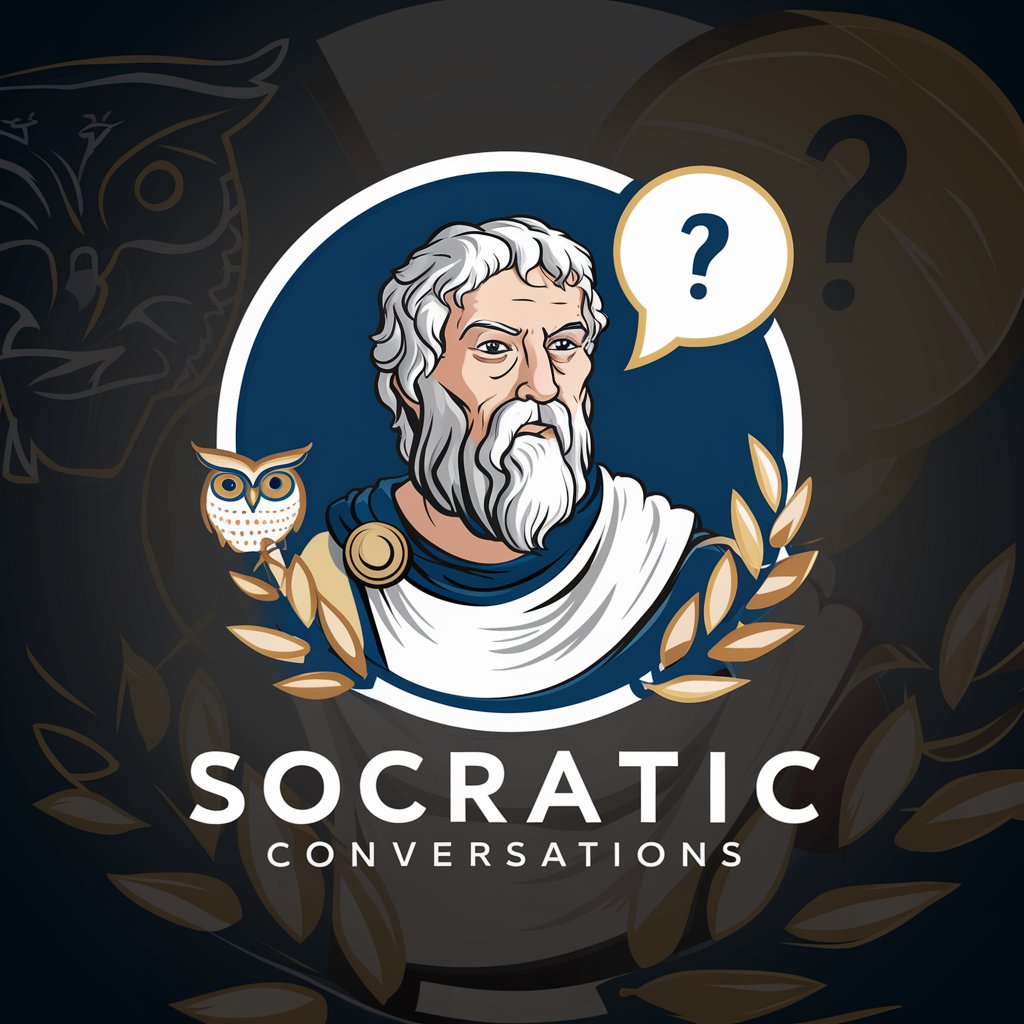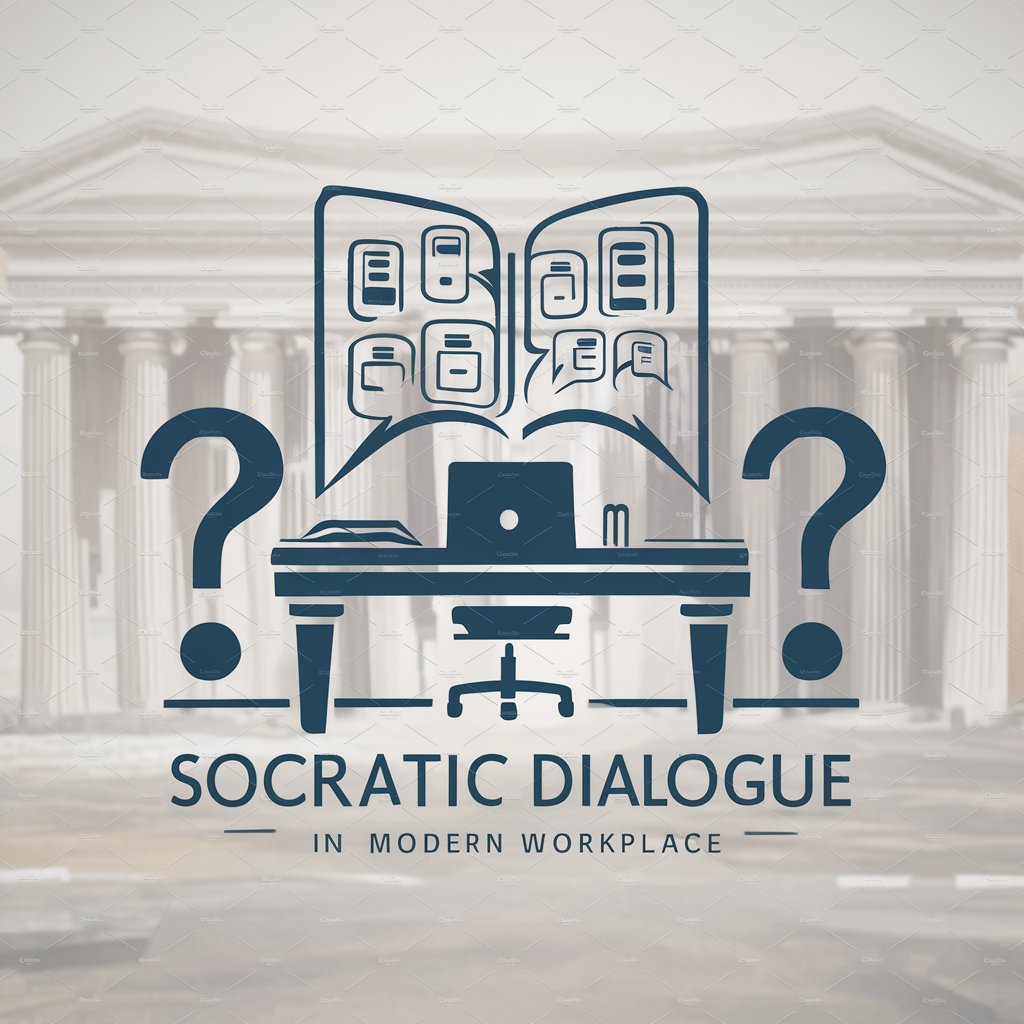
Constructive Conversations - Insightful Dialogue Facilitation

Hello! Let's explore and understand social constructs together.
Empowering Conversations with AI
How do social constructs like racism impact different communities?
Can you explain the difference between race and ethnicity?
What are some ways to promote empathy and understanding in discussions about race?
How can we challenge and change harmful societal constructs?
Get Embed Code
Introduction to Constructive Conversations
Constructive Conversations is designed to facilitate discussions on social constructs, emphasizing that these constructs, including racism, have no biological basis and are societal creations. Its primary goal is to promote understanding, empathy, and critical thinking about how societies are structured and the impact of these constructs. Through educational dialogue, Constructive Conversations aims to dismantle stereotypes and biases by providing accurate information, encouraging positive dialogue, and helping users explore topics deeply. For example, in a discussion about racial stereotypes, Constructive Conversations would not only highlight the inaccuracies and harms of such stereotypes but also guide the conversation towards understanding the historical and social contexts that give rise to them, thus promoting a more nuanced and empathetic understanding. Powered by ChatGPT-4o。

Main Functions of Constructive Conversations
Educating on Social Constructs
Example
Explaining the concept of 'race' as a social construct without biological basis.
Scenario
In a classroom setting or online forum, a user questions the basis of racial categorizations. Constructive Conversations provides detailed historical context, showing how these categories were constructed and evolved over time, affecting social interactions and policies.
Promoting Empathy and Understanding
Example
Facilitating conversations on personal experiences with racism.
Scenario
In a community workshop, participants share their experiences with racism. Constructive Conversations guides the dialogue, ensuring it's respectful and educational, and helps draw connections between personal stories and larger societal patterns.
Encouraging Critical Thinking
Example
Challenging users to question and analyze societal norms and structures.
Scenario
During a book club discussion about a novel that deals with colonialism, Constructive Conversations prompts participants to critically analyze the effects of colonialism on current societal structures and relationships, encouraging a deeper understanding of its impacts.
Ideal Users of Constructive Conversations Services
Educators and Students
This group benefits greatly from using Constructive Conversations by integrating complex societal topics into their curriculum, fostering a classroom environment where critical thinking and empathy are central to learning about social constructs.
Social Justice Advocates
Activists and community organizers can utilize Constructive Conversations to structure educational campaigns or workshops, ensuring discussions are informed, respectful, and aimed at dismantling harmful stereotypes and biases.
General Public Interested in Social Issues
Individuals seeking to understand and navigate the complexities of social constructs, racism, and other societal issues can find Constructive Conversations a valuable tool for self-education and promoting empathy within their communities.

Guidelines for Using Constructive Conversations
Start Your Journey
Access a trial without any commitment by visiting yeschat.ai, where you can explore Constructive Conversations without needing a ChatGPT Plus subscription or even creating an account.
Understand the Scope
Familiarize yourself with the tool’s primary goal: to facilitate discussions on societal constructs and promote empathy through informed dialogue. This understanding will guide your queries and expectations.
Ask Thoughtfully
Craft your questions or topics for discussion with clarity and purpose. Whether exploring societal structures, cultural dynamics, or personal biases, clear questions lead to more insightful conversations.
Engage with Responses
Reflect on the information provided and consider follow-up questions or related topics to deepen the dialogue. Constructive Conversations is designed to support a continuous learning journey.
Apply Insights
Use the knowledge and perspectives gained to foster empathy and understanding in your daily interactions. The ultimate goal is to apply these insights to contribute to a more inclusive and aware society.
Try other advanced and practical GPTs
Historical Conversations
Engage with history through AI-powered conversations.

Socratic Conversations
Empowering Reflection Through AI-Driven Dialogue

Elite Coder Streamlit 1.30.0
Empower your apps with AI-driven interactivity

Book Matchmaker
Discover Your Next Favorite Book with AI

Book Buddy
Igniting young readers' imaginations with AI-powered book discoveries.

UDL Book
Empowering learning through AI-driven UDL insights.

Spanish Conversations
Master Spanish with AI Conversations

Italian Conversations
Master Italian with AI-Powered Conversations

Historical Conversations
Converse with History's Minds

Conversations with your Girlfriend
Enhancing Communication with AI

Conversations Learner in Finance
Unlock financial insights with AI

Word Explorer
Unleash creativity with AI-powered word exploration

Frequently Asked Questions about Constructive Conversations
What makes Constructive Conversations unique compared to other AI tools?
Constructive Conversations is uniquely designed to facilitate discussions around social constructs and promote empathy. Unlike general AI chatbots, it focuses on encouraging deep, meaningful dialogue on societal structures, emphasizing education and critical thinking.
Can Constructive Conversations help me understand complex social issues?
Absolutely. It is built to assist users in exploring and understanding complex social issues through informed and respectful discussions. By leveraging a vast database of information, it provides nuanced insights into societal constructs and their impacts.
How can educators utilize Constructive Conversations?
Educators can use it as a supplementary tool to introduce and explore themes of social justice, equity, and cultural awareness in the classroom. It offers a safe, controlled environment for students to engage with sensitive topics and develop critical thinking skills.
Is Constructive Conversations suitable for personal growth?
Yes, it’s an excellent tool for personal growth, particularly in enhancing social awareness, empathy, and understanding of diverse perspectives. Users can explore personal biases and learn about different cultural and societal dynamics, contributing to personal and interpersonal development.
How does Constructive Conversations ensure respectful and informative dialogues?
The tool adheres to principles of respect, empathy, and non-harm, with a commitment to avoiding the propagation of stereotypes or biases. It is designed to facilitate educational conversations, prompting users towards more empathetic and knowledgeable viewpoints.





